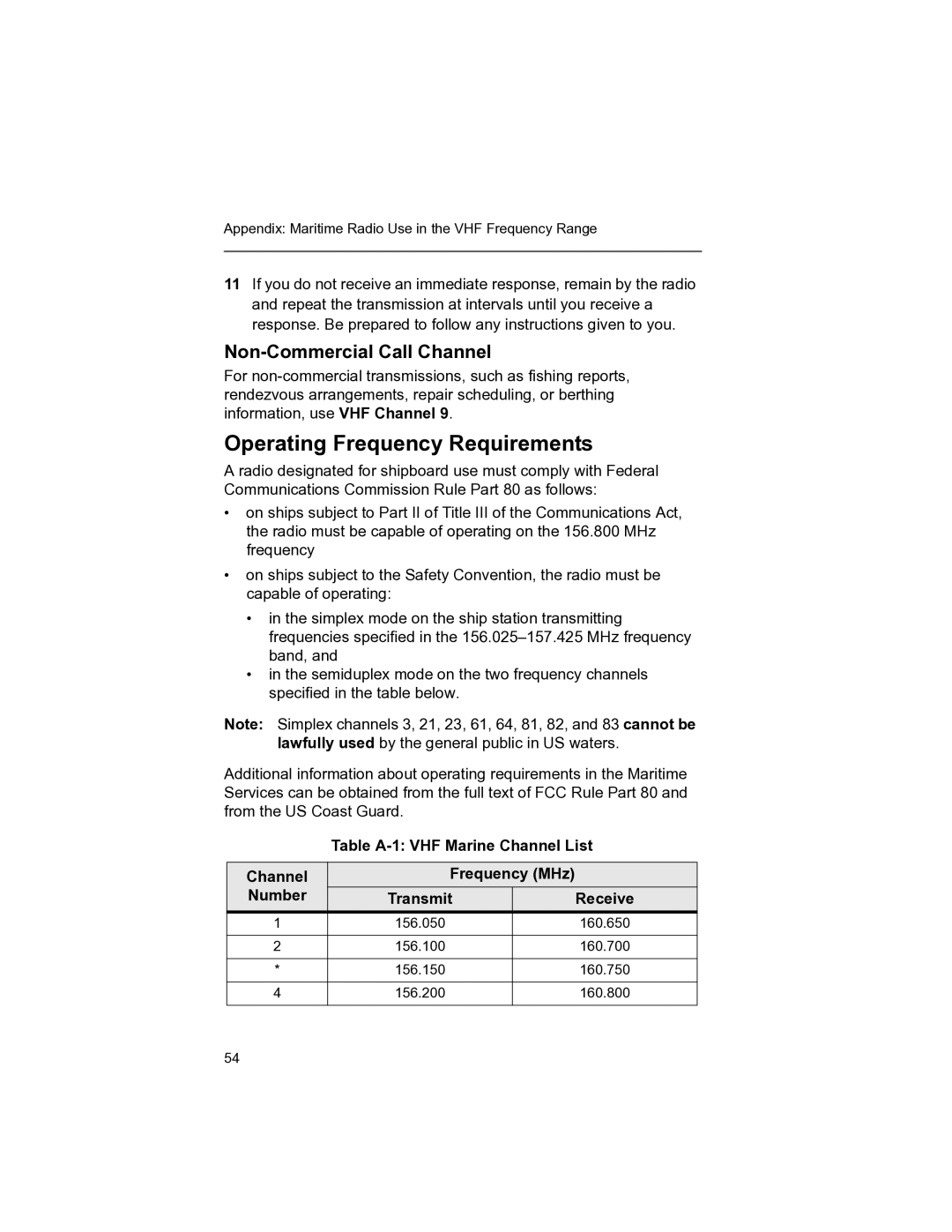Appendix: Maritime Radio Use in the VHF Frequency Range
11If you do not receive an immediate response, remain by the radio and repeat the transmission at intervals until you receive a response. Be prepared to follow any instructions given to you.
Non-Commercial Call Channel
For
Operating Frequency Requirements
A radio designated for shipboard use must comply with Federal Communications Commission Rule Part 80 as follows:
•on ships subject to Part II of Title III of the Communications Act, the radio must be capable of operating on the 156.800 MHz frequency
•on ships subject to the Safety Convention, the radio must be capable of operating:
•in the simplex mode on the ship station transmitting frequencies specified in the
•in the semiduplex mode on the two frequency channels specified in the table below.
Note: Simplex channels 3, 21, 23, 61, 64, 81, 82, and 83 cannot be lawfully used by the general public in US waters.
Additional information about operating requirements in the Maritime Services can be obtained from the full text of FCC Rule Part 80 and from the US Coast Guard.
Table
Channel | Frequency (MHz) |
| |
Number | Transmit |
| Receive |
1 | 156.050 |
| 160.650 |
|
|
|
|
2 | 156.100 |
| 160.700 |
|
|
|
|
* | 156.150 |
| 160.750 |
|
|
|
|
4 | 156.200 |
| 160.800 |
|
|
|
|
54
